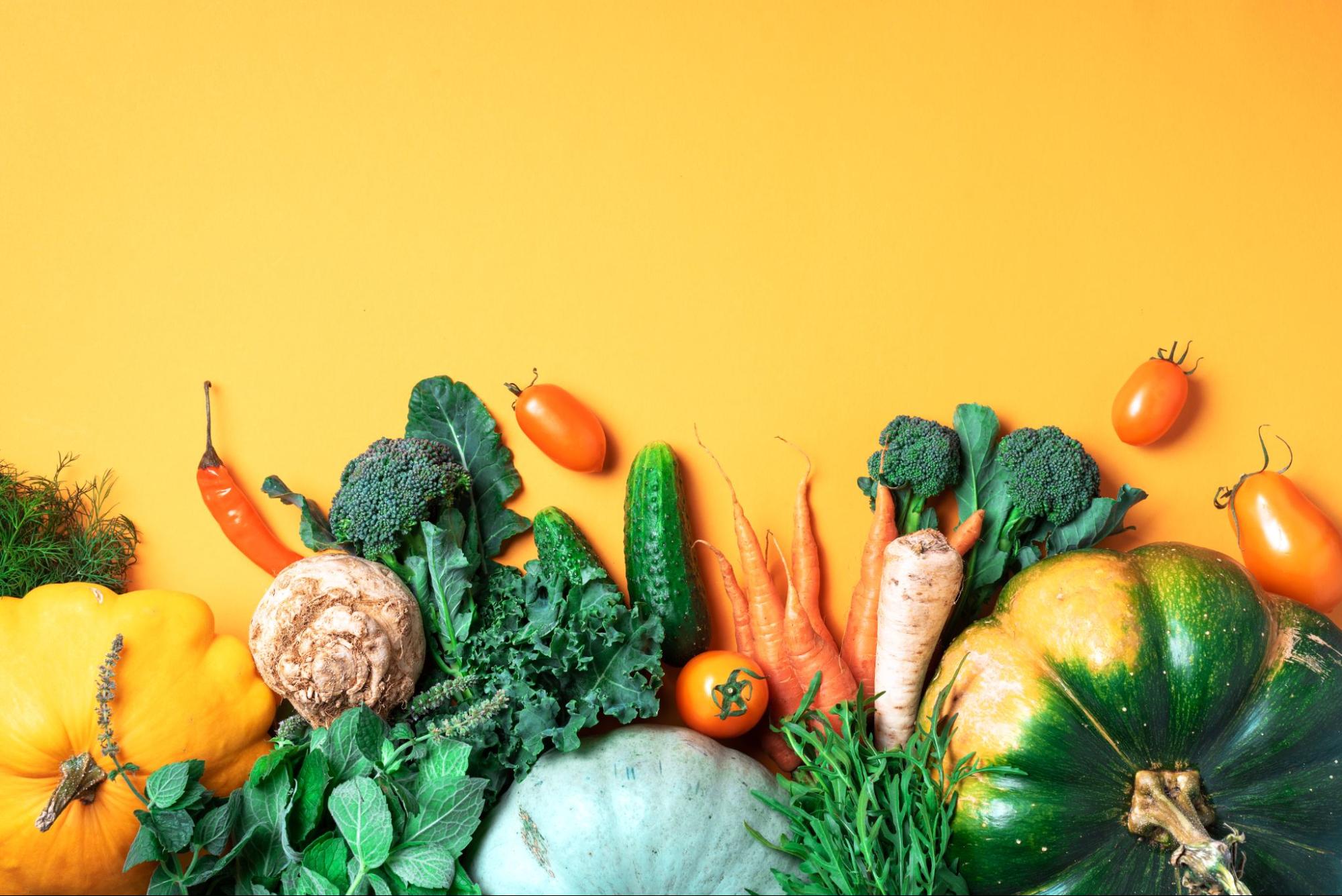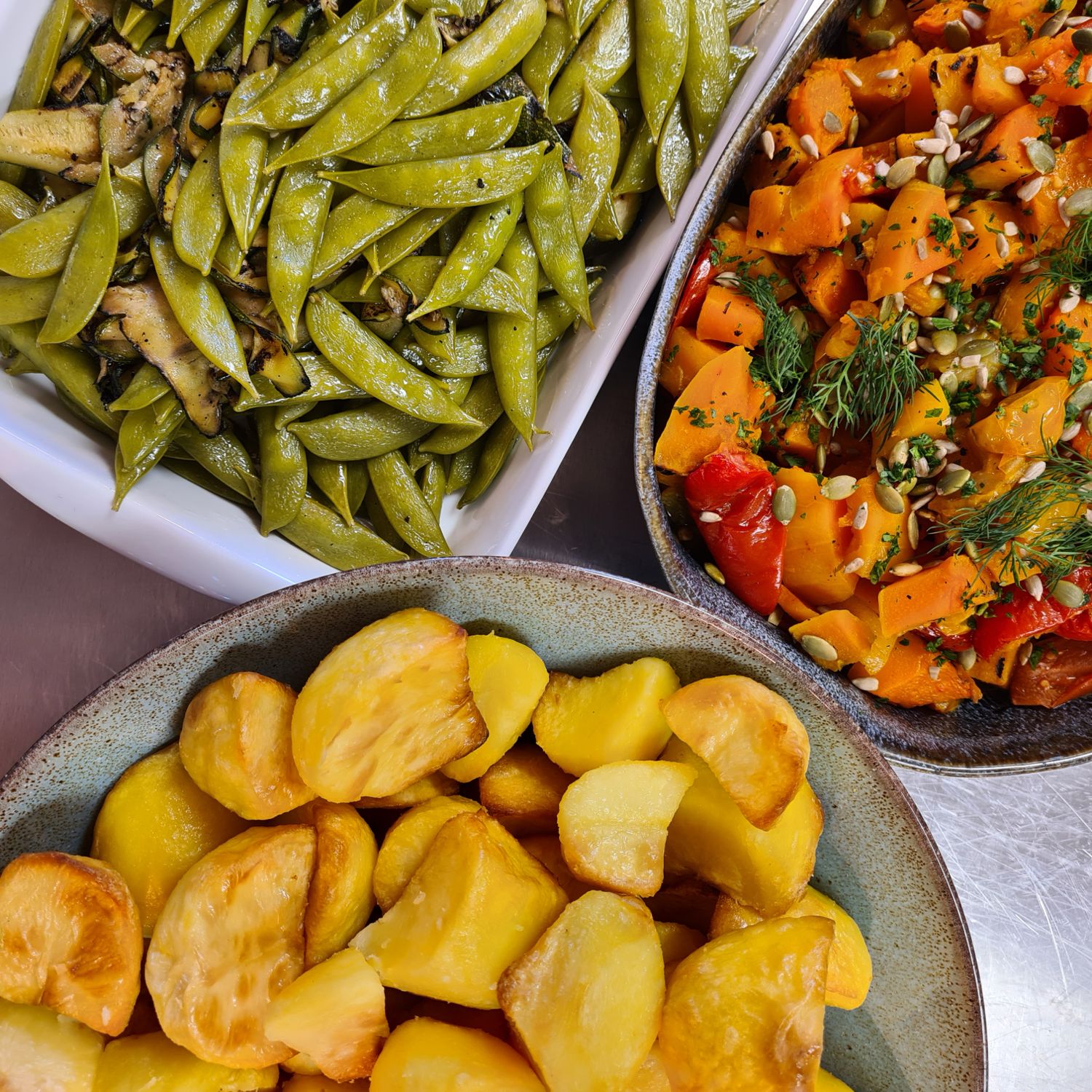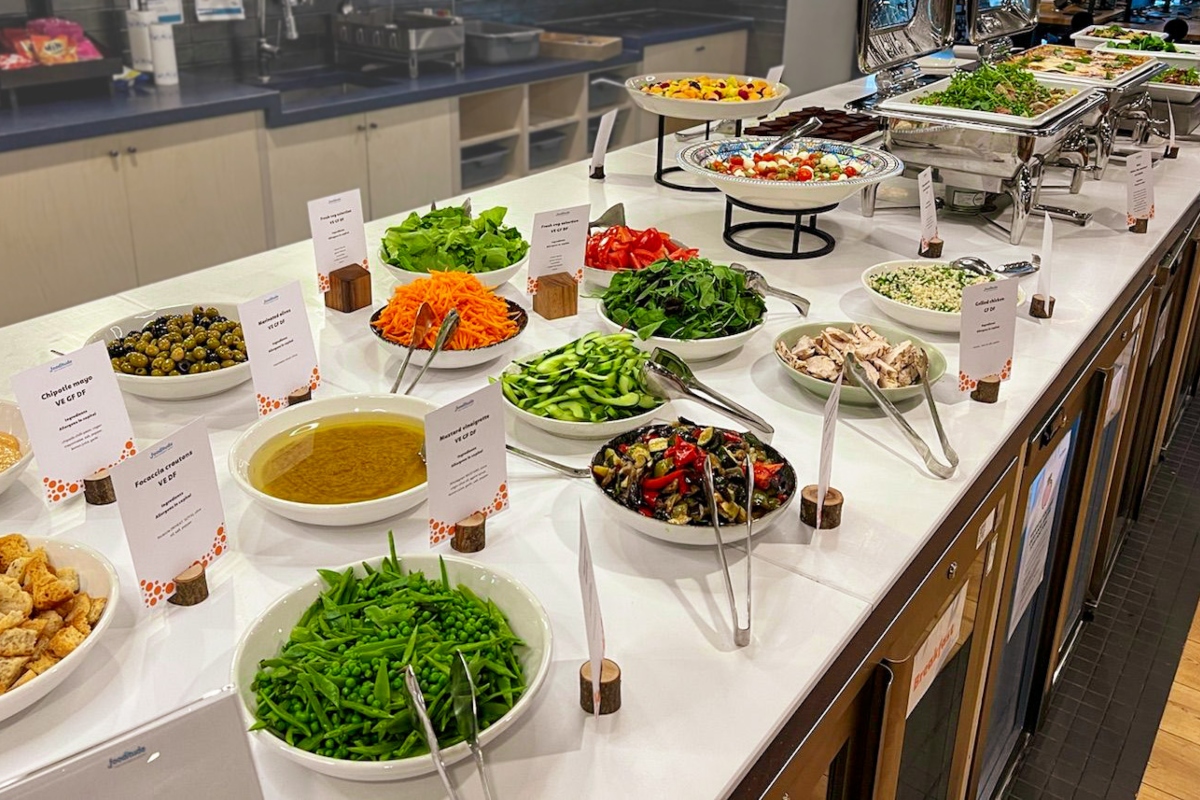Back in 2021, Google reported a more than 5000% increase in people searching for “vegan food near me”. Whether someone’s vegan, veggie or a ‘flexitarian’: Ireland is becoming more open-minded with meat-free choices on its menus and in its shopping baskets.
It’s worth pointing out that just because someone orders a vegan burger, doesn’t mean they have stopped eating animal produce entirely. Someone might be willing to make some sacrifices in what they eat: but they might not be willing to go all the way.
Research by Oatly, shines a light on the complexity of the issue: 48% of 25 to 34-year-olds said they were likely to consider swapping animal products for a vegan alternative. On the other hand, over 50% of people over 65 years old were reluctant to change.
Different segments of society have contrasting attitudes towards eating meat-free options. When it comes to what we eat: not everyone is going to be equally willing to embrace change.
Vegan food vs. plant-based food: understanding the difference
Vegan food
Vegan food excludes meat, poultry, fish, dairy products, eggs and honey (or any other animal-derived ingredients we’ve missed here). Opinions on what is and isn’t vegan can get complicated. There is even debate on whether figs can be considered ‘vegan’ due to how they are grown.
The most important thing to understand is this: vegan food is part of a broader ethical philosophy that avoids consuming animal products and by-products.
Plant-based food
Plant-based food refers to foods derived from plants; this includes fruits, vegetables, whole grains, legumes, nuts, and seeds. Here’s what makes it different from vegan food: whilst plant-based food focuses on plant ingredients, it doesn’t necessarily exclude other animal by-products. It is worth noting, however, that plant-based food will also be vegan most of the time.
So, where veganism is a comprehensive lifestyle choice that goes beyond diet, a plant-based diet focuses primarily on food choices and diet.
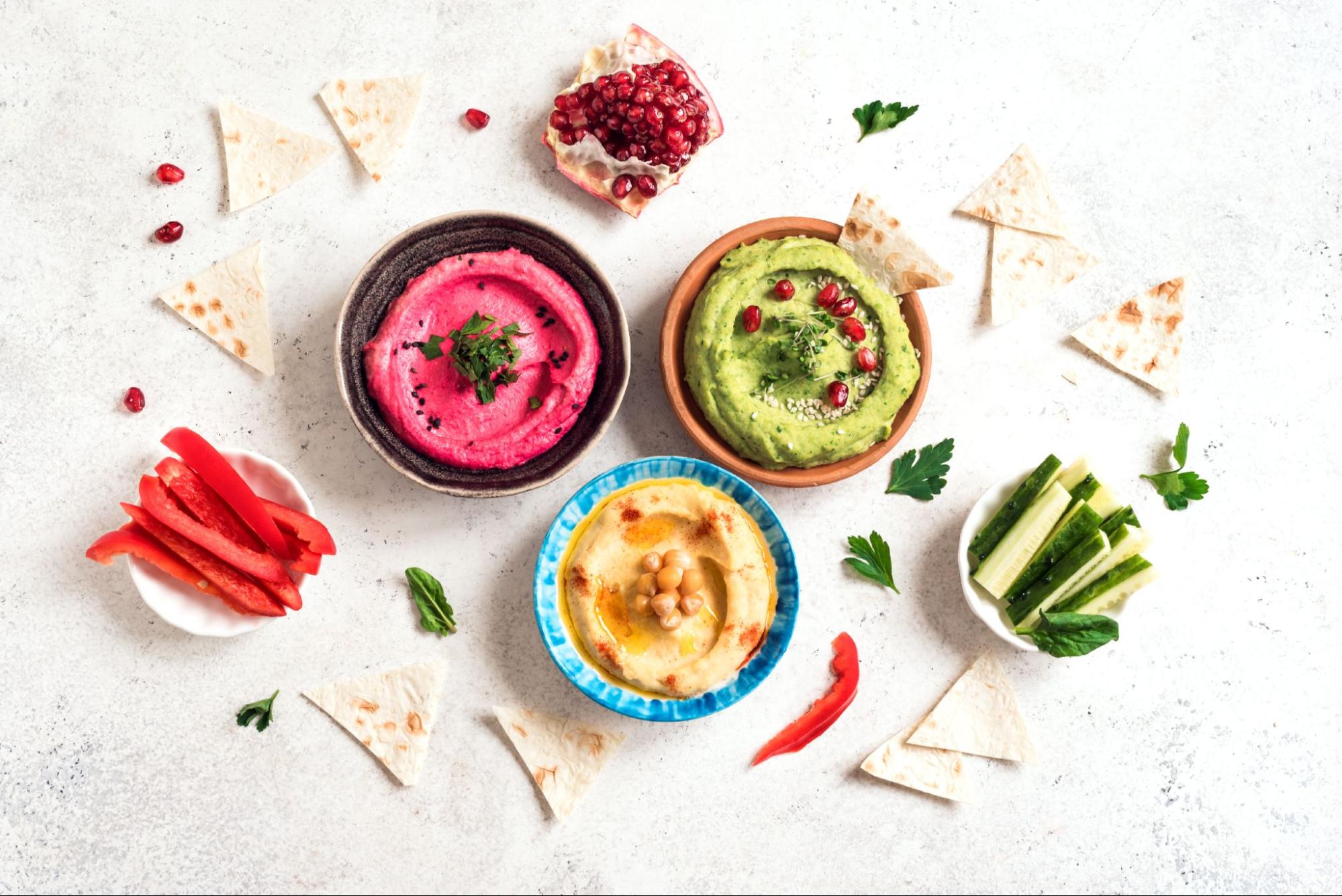
What are people’s reasons for buying vegan and plant-based food?
Vegan and plant-based food has caught the world’s interest
Whether you’re reading an article that supports or rebukes vegan and plant-based foods: it has undeniably become a trending subject.
Whether you get your information from TikTok or the Irish Times: it’s difficult to avoid the subject of vegan and plant-based food. Not to forget the sustainability benefits that go with it.
Once more, every supermarket visit and restaurant experience will provide you with the option of going meat-free. It’s easy than ever to access vegan and plant-based foods. The option to choose high-quality food without animal produce is nearly always there.
Awareness is growing. Due to the conversations happening today, people are learning, changing their perspectives on eating and adapting their diets.
Eco-consciousness
The food systems we rely on to eat require many resources and energy to maintain. A report by the United Nations found that animal agriculture accounts for 14.5% of global greenhouse gas emissions.
Some detrimental impacts will inevitably result from the production of the food we eat. One of the most straightforward ways of eating to mitigate climate change is to move to a plant-based diet.
Plant-based flexitarian diets reduce greenhouse gas emissions by 52%. They also eliminate contributions to deforestation and overfishing compared to diets with high amounts of animal products.
Consumers are learning that by eating more mindfully, they can make a positive difference in minimising greenhouse gas emissions, deforestation, and water pollution.
Animal welfare
The rise of veganism is linked to increased awareness and concern for animal welfare as more people become aware of the ethical issues surrounding meat production.
The meat and dairy industries often fall short of expectations in how they treat animals. Some issues in agricultural animal welfare include factory farming, confined spaces, overcrowding, and a general lack of enforced regulation ensuring animal well-being.
Many people in Ireland choose to reduce meat consumption or move to vegan and plant-based diets to reduce their contribution to animal cruelty. Because of this, consumer preferences have changed; more and more individuals are choosing free-range, grass-fed, welfare-ensured or organic meat and dairy.
Healthy living
Since the documentary “What the Health” was released, there has been a surge in veganism, plant-based diets and generally consuming meat-free alternatives because of the extensive health risks associated with the high consumption of animal products.
High consumption of red and processed meat has been linked with an increased risk of heart disease, stroke, and premature death. The American Heart Association recommends a plant-based diet for heart health as it can lower the risk of heart disease and stroke.
For health reasons, people are opting for vegan, plant-based and vegetarian diets, increasing their consumption of meat-free products. These food choices help to lower blood pressure levels, reduce blood cholesterol levels, and have lower saturated fats and free sugars while containing higher amounts of dietary fibre that are good for your gut.
That being said, when somebody on a vegan or plant-based diet wants to indulge in some comfort food, from pizzas to fried chicken: there are now exciting new ‘meatless’ meat-style options available. It’s important to flag that not all vegan and plant-based food is ‘healthy’: but by following the diet, you are more likely to eat better than if you opted for animal-based products.
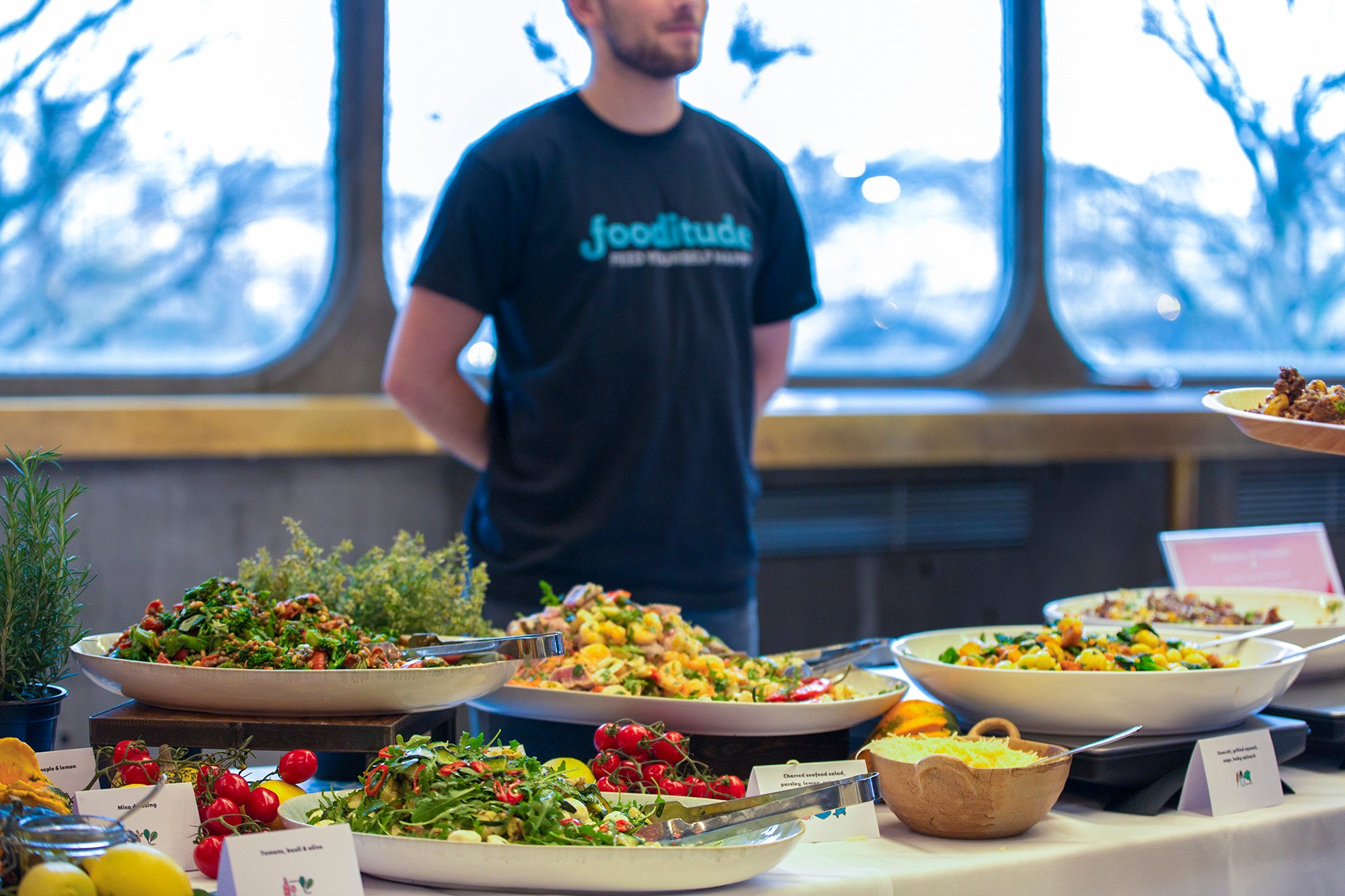
Moving with the times: vegan and plant-based options in office catering
If the desire for plant-based and vegan food is growing in Ireland: it makes sense that the demand also exists in the workplace. Companies are now held to a high standard to take sustainable action for both the consumer, their operations and their employees. By serving more planet-friendly food in their canteens: companies are reducing their negative impact.
Choosing a sustainable caterer that promotes vegan and plant-based dishes in their menu is now ‘a must’ in Dublin’s leading workplaces. Whilst there is too much demand to remove animal-products from the office menu entirely, workplaces and caterers can work together to offer a foodservice that encourages a better way of eating.
At Fooditude, we have adapted how we feed offices to promote and showcase how delicious vegan and plant-forward eating can be. Food preference is personal and deeply cultural: it’s not up to us to demand people change how they eat. But office canteens are a great place to advocate new ways of eating.
At a Fooditude buffet, we don’t hide our vegan and plant-based dishes to the side of our buffets or menus: they take centre stage! When they use our service, we hope that meat-eaters think: “I might try the Persian aubergine and chickpea curry today rather than the chicken option”.
Vegan and plant-based eating will help create a more sustainable future, and any food provider should be at the forefront of this change. By making vegan and plant-based dishes more appealing: we can make a difference through gentle encouragement.
Want to discover more about how Fooditude provides sustainable catering solutions? Check out our sustainability page
